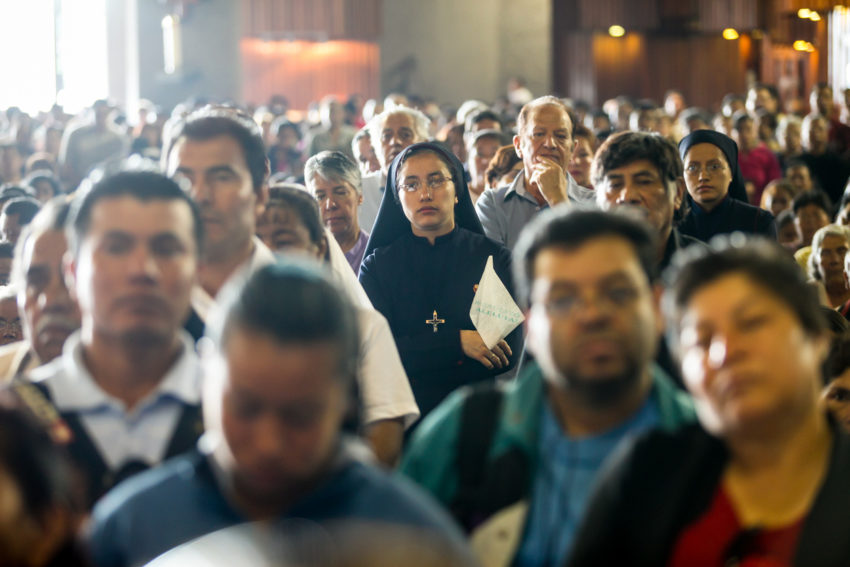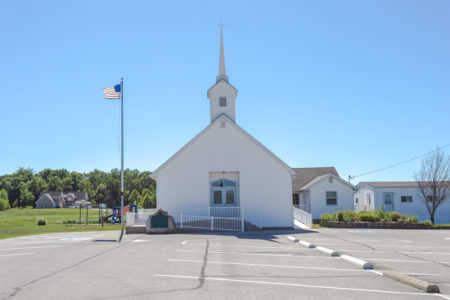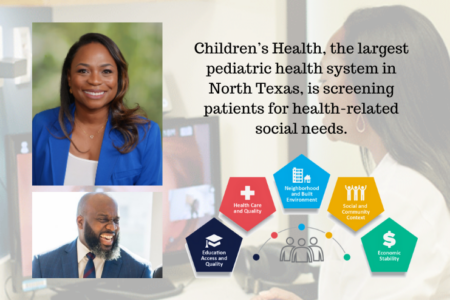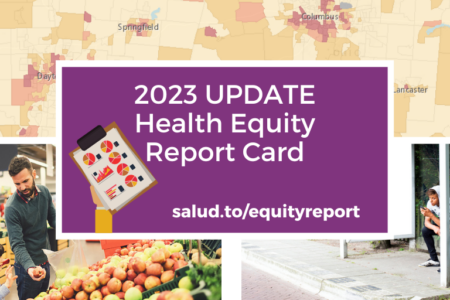
Share On Social!
Many U.S. churches are taking dedicated action to assist those in need of affordable housing by building developments on their properties.
“There’s so much land owned by houses of worship anywhere you go in the country,” David Bowers of Enterprise Community Partners, a nonprofit focused on housing solutions, said in a speech at the World Economic Forum (WEF).
Churches and religious institutions are among the country’s largest landowners. Many of them have additional unused land or adjacent sites that are suitable for development.
The current lack of affordable housing in America has substantial implications for many Latinos and dramatically impacts their quality of life.
Religious Institutions’ Role
Places of worship usually offer a variety of amenities that make them ideal for housing redevelopment, including their central location and parking structures.

Several church networks and partnered developers in Virginia (9.6% Latino), Washington, D.C. (10.7%), and Baltimore (5%), more than 5,000 affordable housing units have been built, preserved or are being aided by church organizing in the area. These US churches are creating low-income, or social, housing with their buildings.
“In Washington D.C., a mix of Christian charity and pragmatism, churches are quietly creating low-income housing in areas,” writes Carey L. Biron, with WEF. “Arlington Presbyterian Church is helping its community to tackle affordable housing crises. Construction is now underway on 173 units of low-income housing and ground-floor retail space.”
The Church has had plans to tear down its building and construct 119 units of affordable housing since 2013, Pastor Sarah Harrison-McQueen told Reuters.
Initiatives Across the U.S.
In Denver (30.5% Latino), interfaith groups, who own more than a collective 5,000 acres in the city, have begun an initiative to transform unused land into housing developments.
Recently Chaska, Minnesota‘s (8.8%) city council unanimously approved a concept plan to build four duplexes south of Shepherd of the Hill Presbyterian Church.
The two-acre property will be sold and developed by Habitat for Humanity, a nonprofit organization that helps build affordable homes. The organization will sell each unit to be accessible for lower- to moderate-income families, according to Chad Dipman, project systems supervisor at Twin Cities Habitat for Humanity.
Other churches are aiming to provide at-risk communities with a roof over their heads. The United Methodist Church in Charlottesville, VA. is setting an example in these efforts.
“The new housing project wants to provide more options for residents in the Charlottesville community with a new affordable housing project,” writes Desiree Montilla with CBS 19. “The new housing project would also provide up to six units for people with developmental disabilities.”
Rev. Robert D. Lewis, the Pastor of United Methodist Church said this initiative is too important to overlook, according to CBS 19.
“This project encompasses supported living for adults with intellectual disabilities as part of an integrated community, so they’re not segregated or put to the side, but they’re living with other folks in different apartments,” Lewis said.
Housing instability can lead to unemployment, lower academic achievement, and poorer health outcomes — including mental health. Hence, policy changes and community outreaches with these church brings a significant difference in society.
“Those who are the most vulnerable in our society would have a dream and a hope of a place of their own and the fullest life possible,” Lewis said.
Check out more stories on affordable housing and also read our research review on how the state of housing, transportation, and green space affects Latino Health.
Explore More:
HousingBy The Numbers
56.9
percent
of Latinos are "housing cost burdened"




